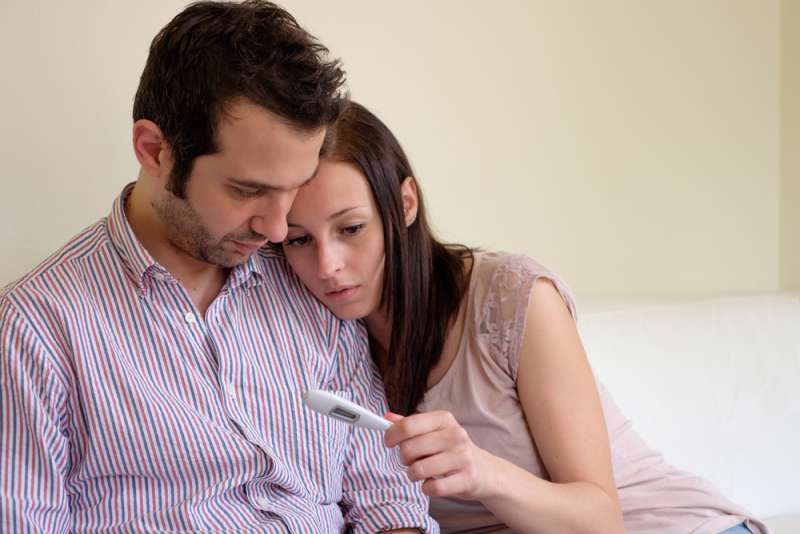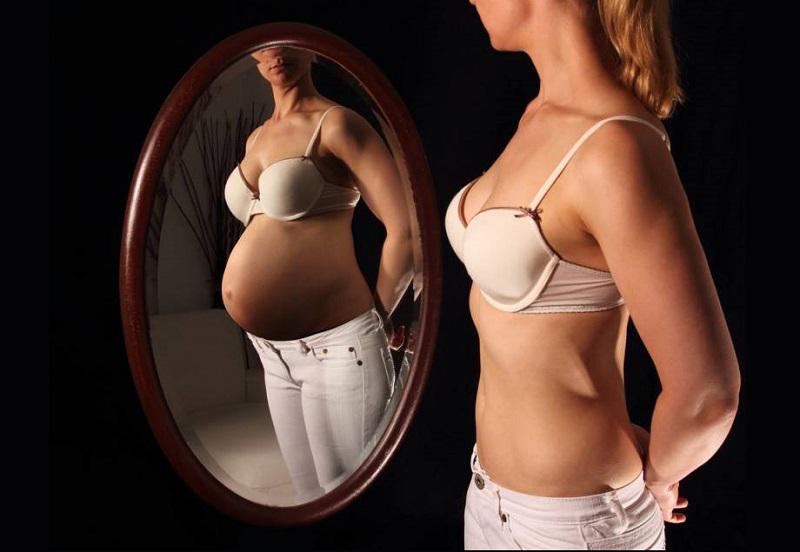What is the Difference Between Primary and Secondary Infertility?

For many couples, having a child or children is one of the most important goals in their lives.
Many people long to be parents and understandably so. Having children can bring great joy and purpose to our lives.
Unfortunately, it is not easy for every couple to get pregnant and have a child.
In other cases, a couple may be able to have a child but then struggle to conceive or carry a second child. When a couple struggles to have a child, it is called infertility.
How is Infertility Defined?

Every couple is different, and depending on a number of different factors, everyone is able to get pregnant at a different speed.
Some couples are able to achieve pregnancy almost immediately upon beginning to try to conceive, while others may take many weeks, months, or even years.
So, you probably are wondering when a couple would be considered as having a problem with infertility.
Well, if a couple has been trying to achieve pregnancy by regularly having sexual intercourse without using any forms of contraceptives for at least one year, they would be diagnosed with infertility.
The Differences Between Primary and Secondary Infertility
Some people may not realize this, but there are actually two different types of infertility.
The two different types of infertility are primary infertility and secondary infertility.
They vary slightly, but overall are caused by the same problems and treated in the same ways.
The biggest difference with these two different forms of infertility is the way that they may be perceived by others and the way that they may make you, as a couple, feel.
1. Primary Infertility

Primary infertility is the type of infertility that most people are aware of and know about.
It is what most would think of when they hear the word infertility.
Primary infertility refers to the type of infertility that a couple would be diagnosed with when they are unable to have a child at all.
A couple suffering with primary infertility is a childless couple that has never been able to conceive a pregnancy or has never been able to carry a pregnancy in order to achieve a live birth.
2. Secondary Infertility

This is the type of infertility that many people are unaware of.
It is not uncommon to not realize that a couple that already has a child or children can suffer from infertility which is exactly what secondary infertility is.
It is when a couple has conceived a pregnancy and achieved a live birth before but is unable to achieve another pregnancy and live birth.
Basically, the couple has a child or children, but is now unable to continue having children.
Struggles Specific to Primary Infertility
Having primary infertility can often lead perspective parents into a truly hopeless feeling.
If you are unable to have a child, you may feel like it is impossible for you and that you will never have a child at all. You may long desperately to know what it is like to be a parent and have a child, and it is likely that you fear that you will never know that feeling.
These are all completely normal and understandable feelings.
Struggles Specific to Secondary Infertility
Secondary infertility comes with its own specific set of problems.
It is not uncommon for people to lack understanding of what you are going through. Many people may look at it like since you already have a child or children, that it isn’t a big deal that you aren’t able to have more.
You even may struggle with a feeling of guilt for being unhappy about not being able to have more children. You may feel like you should be happy just having the child or children that you already have.
It is important to remember that just because you want more children, it does not mean that you aren’t happy with the child or children that you do have. It is still hard and unfair when you are unable to choose the size of your family, even if you are able to have one or some children.
Possible Causes of Infertility
Whether you have primary infertility or secondary infertility, there are a variety of different things that can cause the infertility.
The cause of infertility for a specific couple may have to do with the female, the male, or a combination of problems with each.
If you and your partner have been trying to conceive without success for a year or longer, it may be a good time to reach out for help in diagnosing the cause of your infertility.
Causes of Female Infertility

There are a variety of problems that may be occurring to cause a female to be infertile and have trouble conceiving or carrying a pregnancy.
Possible causes of infertility in a woman could be due to problems with the fallopian tubes, irregular ovulation or other ovulation disorders, problems with the uterus, fibroids, endometriosis, or in some cases, STDs or STIs.
A woman’s age can also play a role in this because as a woman ages, she may not ovulate as regularly, her reproductive system may not function as well, and her eggs may not be as viable.
Causes of Male Infertility

Although male infertility may sometimes be caused by something such as a genetic disease or other problem, male infertility is usually caused by some kind of problem with the sperm.
The male may fail to produce sperm, may have a low sperm count, may have abnormally shaped sperm, DNA fragmentation of sperm, or may just not transfer sperm well.
Read more on the common causes of infertility here.
Infertility Testing
If you and your partner are struggling to have a child, you can meet with a fertility specialist who will be able to examine your infertility and perform tests to help discover the cause of your infertility.
Testing may include blood draws, ultrasounds, semen collection, and physical exams.
Most of the time, a cause can be determined which can help with treatment, but even when a cause is unable to be determined, there are still treatment options.
Treatment of Infertility
The treatment of infertility varies a lot and usually depends on the cause of the infertility. It would usually begin with the most basic options such as tracking the female’s cycle to determine the best timing to achieve the best chance of conceiving.
Further treatment may include medications including hormones to help induce ovulation.
If these things are not successful, or depending on the cause of your infertility, your specialist may suggest artificial insemination or in some cases even invitro fertilization (IVF).
If the cause of infertility is something along the lines of a problem with the uterus or fallopian tubes, you may have the option of surgery to increase your chances to conceive and carry a child.
Read more on Infertility Treatment Options here.
Hold on to Hope
The road of infertility is often a difficult and long one.
It can take a lot of commitment, determination, and perseverance to achieve your goals of conceiving when you are struggling with any type of infertility.
Treatment options have come a long way, and while nothing is ever guaranteed, there is a good chance that by holding on to hope and not giving up, that you will still be able to become pregnant and give birth to a child.
Related Content:
Fertility Clinics
Top 10 Fertility Clinics Melbourne
Top 10 Fertility Clinics Sydney
Top 10 Fertility Clinics Brisbane
Top 10 Fertility Clinics Perth
Top 10 Fertility Clinics Adelaide
Top 10 Fertility Clinics Gold Coast
Fertility Doctors/Specialists
Top 10 Fertility Doctors Melbourne
Top 10 Fertility Doctors Sydney
Top 10 Fertility Doctors Brisbane
Top 10 Fertility Doctors Perth
Top 10 Fertility Doctors Adelaide
Top 10 Fertility Doctors Gold Coast
Fertility Acupuncturists
Top 10 Fertility Acupuncture Melbourne
Top 10 Fertility Acupuncture Sydney
Top 10 Fertility Acupuncture Brisbane
Top 10 Fertility Acupuncture Perth
Most Viewed
-
5 Common Methods of Contraception
Last updated On by Percy Oad -
How to Cope with Male Infertility
Last updated On by Alina -
How to start a child-free life after infertility
Last updated On by Jacinta -
Should You Tell Friends and Family About Your Infertility
Last updated On by Jacinta







